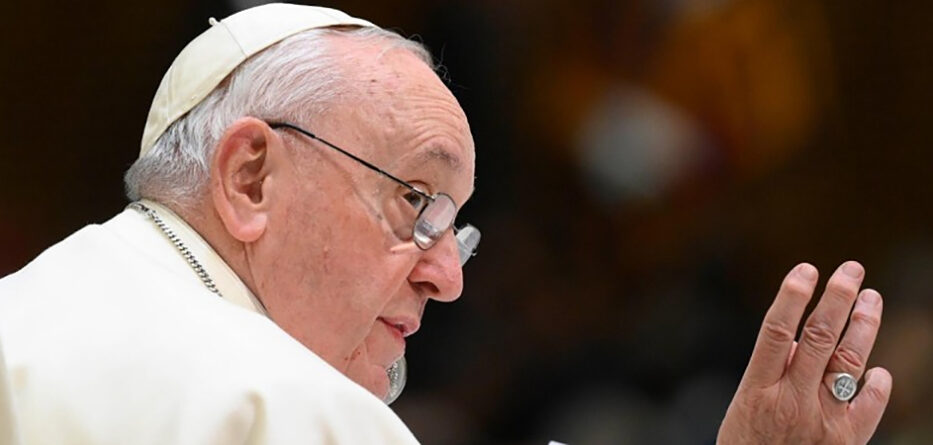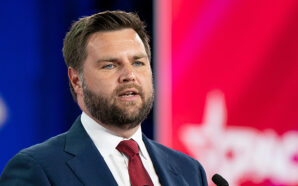Fear of change, a superior sense of already knowing what it means to be Catholic, and a changing cultural context, have helped fuel opposition and bad faith towards the current pope
In these past eleven years since Pope Francis was elected Bishop of Rome, it’s been a daily exercise as a professional historian and theologian to demonstrate to certain Catholics and others that this pope is indeed Catholic. There’s something quite incredible about that when you think about it.
Francis has not turned faithful Catholics into 19th-century “there-is-no-hope-without-the-pope” ultramontanists. Catholics know that not everything a pope says and does is infallible. And it is even legitimate to criticize the pope, as long it is done in a respectful way. But he is the pope and should not be addressed, especially in public, as you might address a co-worker; even less as you might disparage a politician or celebrity you don’t like.
During these years we have witnessed a negativity towards Francis that seems unparalleled in the contemporary papacy. And it’s not just because of his destabilizing style. The radical opposition to him has come from “law and order” Catholics, the party of anti-Vatican II reactionaries. But it is not just about religious ideology. It is the rise of a certain kind of disenchantment, a cynicism masquerading as “know it all” Catholicism.
Catholic cynics and cognitive superiority
An interesting article, forwarded to me by a colleague, sheds light on what has happened in the last decade as it helps debunk the “myth of the cynical genius”, the belief that cynics and their negativity (and even nihilism) represent competence and cognitive superiority over those who are more trusting and less cynical. The scholarly study was authored by Olga Stavrova and Daniel Ehlebracht of the Institute of Sociology and Social Psychology at the University of Cologne (Germany). It was published in 2018 under the title, “The Cynical Genius Illusion: Exploring and Debunking Lay Beliefs About Cynicism and Competence”.
Stavrova and Ehlebracht start from the widely shared assumption that “cynicism might be seen as a sign of competence. Taken together, these arguments suggest that, in laypersons’ beliefs, cynicism might be positively associated with competence”. Their article (published after other studies they authored on solidarity, anti-social and cynical vs. pro-social behavior) elaborates data from other studies, one which is based on the data of about 200,000 individuals from 30 countries. Stavrova and Ehlebracht challenge the idea, coming from an evolutionary perspective, that “suspiciousness, precautionary reasoning, and endorsement of the ‘better safe than sorry’ heuristic inherent to cynicism” are signs of a competent decision maker. With abundance of data, they say that the opposite is true.
“The idea of cynical individuals being more competent, intelligent, and experienced than less cynical ones appears to be quite common and widespread, yet, as demonstrated by our estimates of the true empirical associations between cynicism and competence, largely illusory,” they conclude. “As Stephan Colbert, an American comedian, writer, and television host, phrased it, ‘Cynicism masquerades as wisdom, but it is the furthest thing from it’,” they say, paraphrasing one of the American celebrities most comfortable and credible in speaking publicly about his Catholic faith.
Anxiety about change in the Church
This scholarly study arguing in favor of anti-cynical behavior and against the correlation between cynicism and competence applies to what has happened in the Catholic Church especially in the last decade. We have seen opponents of Pope Francis parade their negativity and contrarian “insider’s view” as a badge of honor but they are really hiding their anxiety about change in the Church. We have not only seen ordinary lay Catholics gradually become cynical about the current pope and his pontificate. We have actually seen this cynical attitude in some leading Catholic figure from the very beginning in 2013. There are even bishops who refuse to give the benefit of the doubt to the Bishop of Rome, with whom they must be in communion to remain legitimate members of the episcopal college.
The growth of cynicism must be framed in our social and cultural context: more than two decades of the Catholic Church’s global sex abuse crisis; the collapse of institutional narratives once controlled by ecclesiastical and mainstream media; the quasi-totalitarian expectation of total transparency; the rise of individual and group identity as a marker of authenticity and truth; the mania for desecration and entertainment; the thin line between suspicion and credulity.
Cynicism is a social and political problem, a “neoliberal affect […] the feeling of living under structural conditions that curtail the kinds of self-determining subjectivities that have been taken for granted as a feature of Western, liberal democracies and remain foundational to imagined modes of dissent.”
“It’s important to know how to give the Church some love”
But cynicism is also a spiritual problem. It is the consequence of the deep-seated assumption of already knowing, of having nothing to learn from the Church, that is, from brothers and sisters in the faith, and not even from the pope. Or, even worse, it comes from the nihilistic assumption that it is impossible to know the truth or that it does not even matter. The Church’s polycrisis (abuse, racism, gender) represents a test, but it also offers a lesson on how fidelity and commitment can survive betrayal and disenchantment.
From March 2013 up to the present, we have witnessed an unprecedented public debate on Francis’ pontificate. It has been tailor-made for blogs and social media, for “my-own-Catholicism” militant media, where anyone feels authorized to accuse others of heresy as a matter of course. There was once a style that protected a certain Catholic form, but it seem to have been lost in the last several years – even by some Church leaders, both clergy and lay.
This applies in a particular way to the radical opponents of Pope Francis, but not only to them. It’s important to work for Church reform, and to fight corruption and clericalism: this requires clear-eyedness, foresight, and the ability to distinguish the true prophets from those who are false. But as Italian theologian and musicologist Pierangelo Sequeri has said, it’s also important to know how to give the Church some love.
There is indeed at work the myth of the cynical Catholic. But it is exactly the opposite of the wisdom that’s required to love the Church as it is right now, not the one we hope will come one day or the one that never really existed.
Reproduced with permission from La Croix International.








